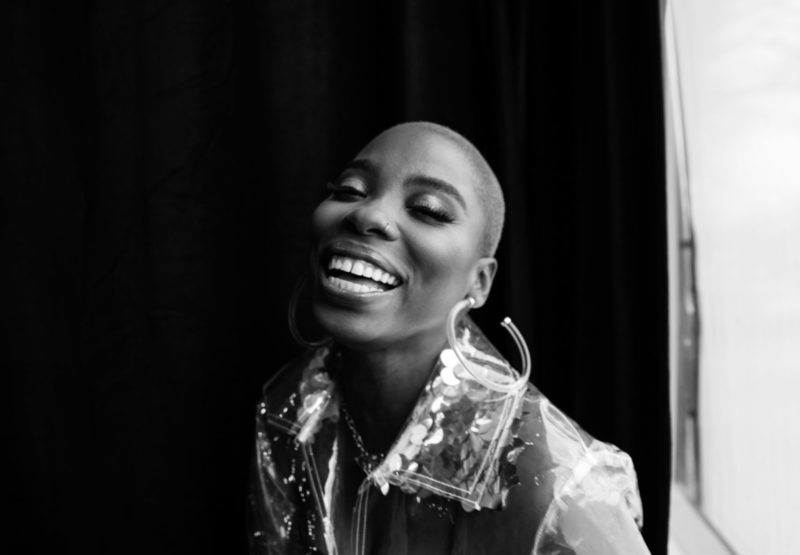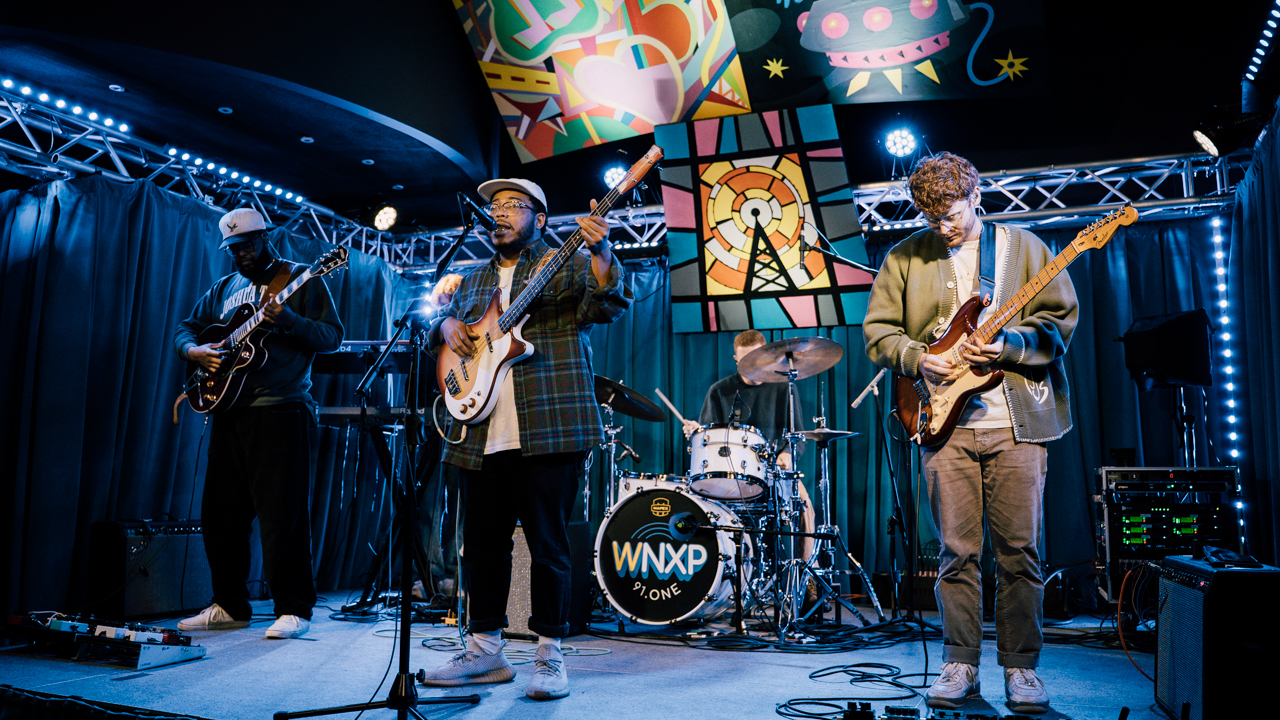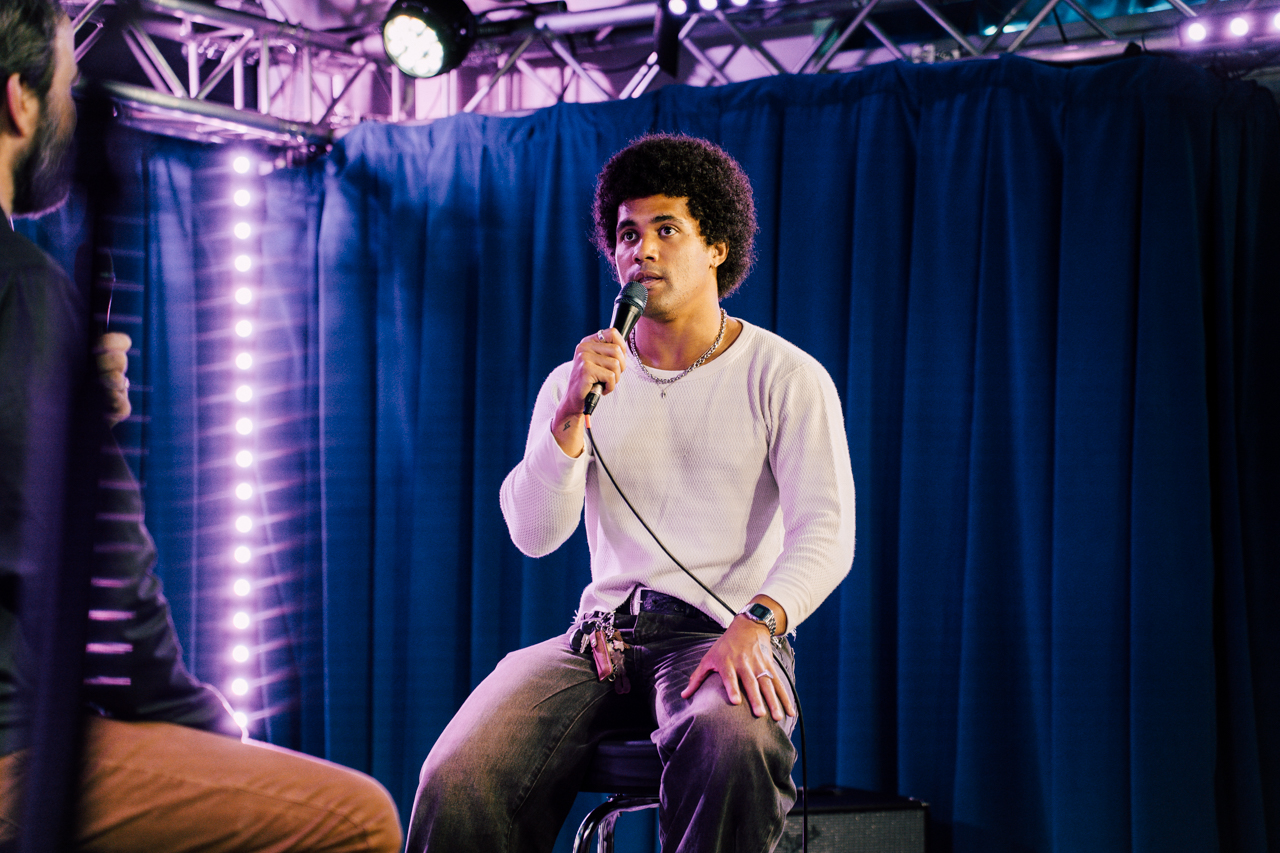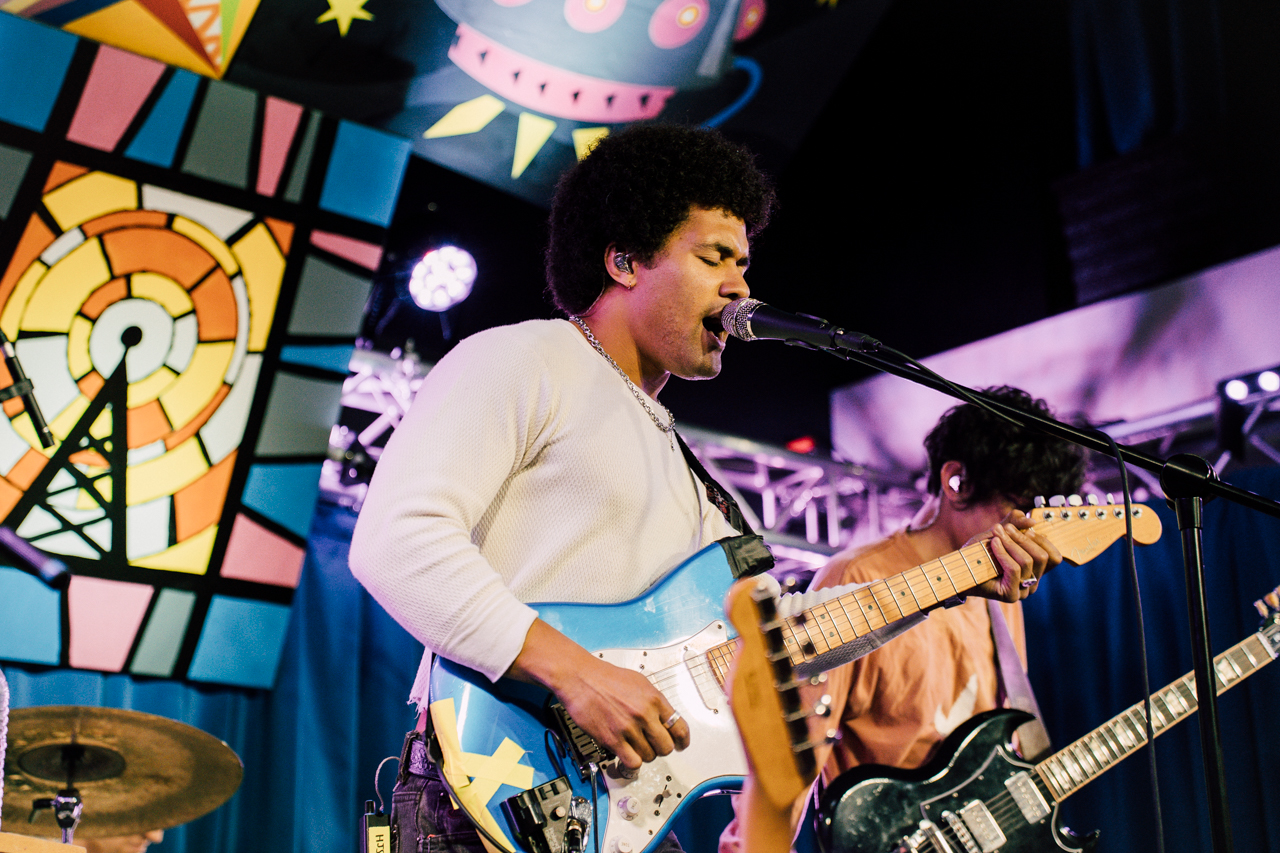Jessy Wilson is well aware that her complete discography can’t be found anywhere online. “I know,” she acknowledges without missing a beat, “because I changed my name a lot. First I was ‘Jessyca Wilson’ with a ‘y,’ then I was ‘Jessyca Wilsing.’ My story also is like you have to look at a map and you see the zig zags of destinations. That’s literally how my life as a creative person has been. I just sort of follow my gut. So that probably has a lot to do with why there’s no linear sort of like chronology out there.
“Yeah, I do need to get it all in one place,” she concludes, “because previously I felt insatiable when it comes to my career. Nothing was ever good enough. And I think that in the universe, until you are able to embrace gratitude for your journey, then how can you open the door for more and for bigger and better?”
When you take it all in, Wilson’s musical journey so far winds through an array of impressive work in the music scenes of New York City, Atlanta, Los Angeles and Nashville. What follows is by no means an exhaustive list, but at least a comprehensive sampling of what she’s done as a recording artist, backup singer and songwriter, and that’s a step toward making sure that the Nashville Artist of the Month gets credit for her musical accomplishments.
- — While attending LaGuardia Performing Arts High School, Wilson sang backup for Alicia Keys, who in turn, sang her praises in an early promotional clip.
- — After graduation, John Legend hired Wilson to sing with him, and she was a prominent voice on his albums from 2006’s Once Again on.
“That was a really important season,” says Wilson. “That’s when I got introduced to the craft of songwriting. He was so gracious always with me in his creative space, and I think it was mainly because I asked. Being very curious and wanting to be better, I think I had only been singing with him for, like, four weeks, and I said, ‘Can I come with you to the studio, please? I’ll be a fly on the wall. I won’t make a sound. I just want to come.’ And he was like, ‘Yeah, absolutely.’ And it was then that I really started wrapping my head around songwriting and song structure and what goes into creating a song and the heart in the mind, and even the preparation before you get to the studio. I always saw John reading a lot, and I think to this day the way that I approach my songs is because I always watched how he started a song.”
- — Wilson’s first songwriting session with an artist other than Legend landed her in the room with Usher, and she went on to write for other R&B stars, including Mario.
- — She also wrote with Macy Gray.
- — And she landed quite a few songs on a Keyshia Cole album.
“I was able to build a bit of a resumé once I did Keyshia Cole,” Wilson recalls, “because I think there were, like, seven songs on that album that I had writing credits on and people were starting to request to have me in the [writing] room.”
- — After relocating to Nashville and making contacts in the professional songwriting world, Wilson was introduced to fellow singer-songwriter Kallie North, and they landed publishing and record deals as Muddy Magnolias. They dropped numerous singles, an EP and an album between 2015 and 2017, making their mark as an interracial, soul-steeped roots rock duo in a predominately white, country-adjacent scene.
“Those first two months of living here,” Wilson recalls, “I circled Music Row over and over, and I said: ‘God make me a pioneer.’ I found out that I wouldn’t be the first, but be, like, the second Black woman to have a number one in country. I knew that I wanted to do something significant and important.”
“Muddy Magnolias was the first time that I experienced tangible success in the way that it registered to me. I think a lot of people would have considered me successful before then, but actually, the things that I wanted to happen were happening. We had sung one song live and the opportunities were just being thrown at us. And I think that that’s twofold. One, yes, it was special. The blend was unmatched. It does something to the heart when you see a Black girl and a white girl up there singing in harmony, what it means to the spirit. I think that was really special and important, especially at the time. But then also you’ve got to think about the business side. It wasn’t a gimmick to us, but I think that the industry found it easy to latch on to.”
There was a socially conscious undertone to much of Muddy Magnolias music, and when the young, Black man Michael Brown lost his life to police brutality, Wilson responded with a righteous blues number.
- — After Muddy Magnolias broke up, Wilson explored other sides of her voice as a solo artist, inspired in part by the expansive experimentation she heard Brittany Howard doing. The Black Keys’ Patrick Carney signed on to produce Wilson’s first album under her own name, Phase.
“I had been stewing and thinking and philosophizing and writing that version of myself and waiting for it to come about,” Wilson reflects, “to have a reason, to have the vehicle. When people heard it, it was so foreign from anything that they had ever heard me do. All of the context that people had of me as a vocalist was just this big singer. And yeah, that’s totally a part of who I am. But my album gave me an opportunity to get quiet. I made an intentional decision to never open up my voice past a certain place on my album, because I had been singing full-out my whole life and I wanted to hear the subtleties in my voice on record. I wanted to zone in on my songwriting. I wanted people to hear what I had to say.”
- — Around that same time, Wilson lent her voice to Tyler, the Creator’s album IGOR.
“That came about, honestly, through social media,” WIlson explains. “He is one of those music lovers, crate-diggers like me. And he heard my voice on that first album that I’m on of John Legend’s. And there’s a song called ‘Maxine’ and another song called ‘Maxine’s Interlude.’ ‘Maxine’s Interlude,’ especially, it’s just this angelic sort of motif. And my voice just sort of does all of these beautiful twirls and elongated [lines]. I think that he just loved that song so much and it stuck with him. When he went to write IGOR, he said that he had my voice in his mind, but he didn’t know who I was. So when he was ready to start adding vocalists, he started looking for me. Finally, somehow he tracked my name down and then looked me up on Instagram. I open the message and it says, ‘Are you the Jessy Wilson? I want your voice all over my next album.’ I went to the studio in L.A. We spent three days, song after song after song after song. Some parts he had already. He knew exactly what he wanted me to sing. Other parts he let me do my own thing. IGOR came out and it was a masterpiece. I couldn’t believe that I got to be a part of it. That’s one of those things that I feel like it’ll [always] be somewhere in my cool kid history.”
- — In late 2020, Wilson co-wrote and recorded an anthemic song called “Keep Rising” that she didn’t think would have a life beyond her expression that day–until she learned this year that it had been selected for the film The Woman King.
“I had been really emotional and on edge about the state of the world and the state of Black people,” she explains. “I remember just walking in the studio and Jeremy [Lutito] had a piano thing going and it was very reminiscent of Nina Simone. And it was just very natural for me to be inspired by her as if she were in the room. That was my interpretation of that feeling, what she would have thought about the moment, what she would have said about the moment, those words being my own as well. I think that I resonated with that because that’s what my soul was feeling, not just for what was happening in the country and what continues to happen in the country, but just also my own internal fight.”




